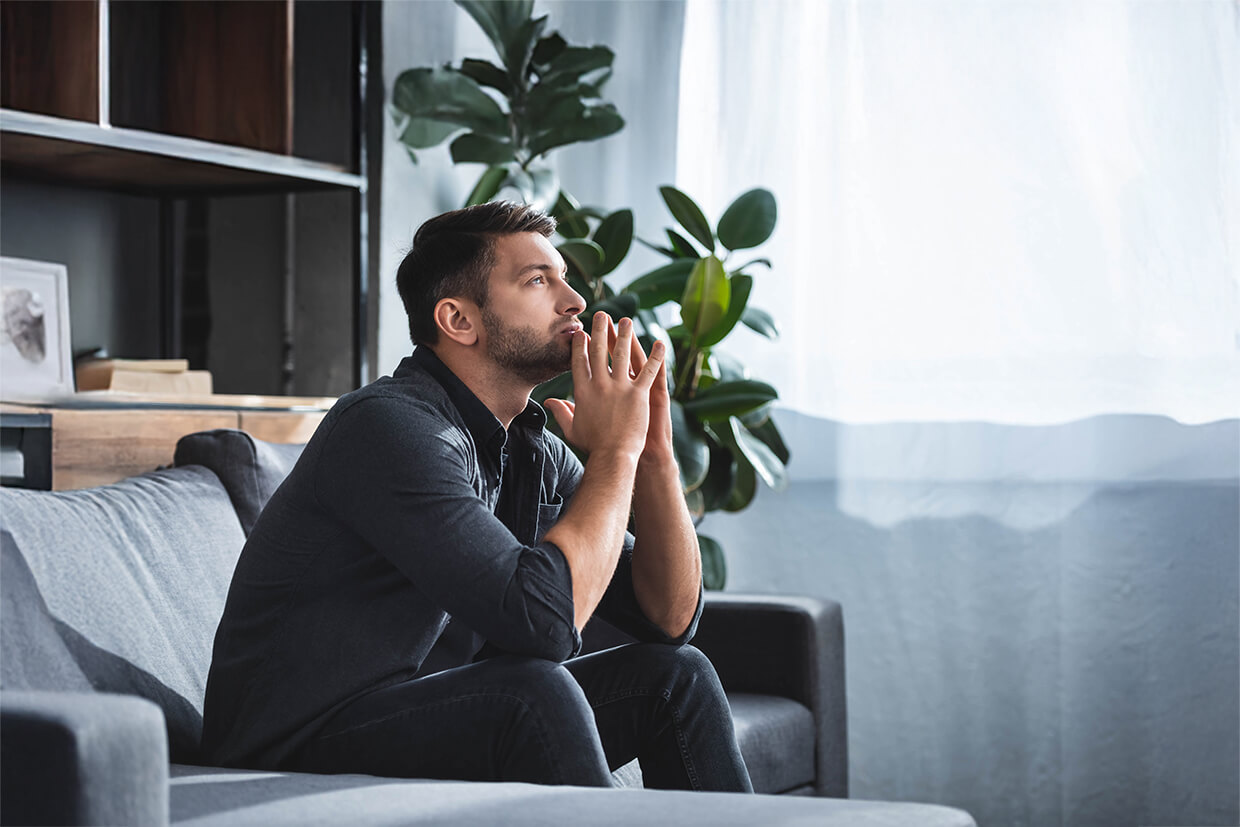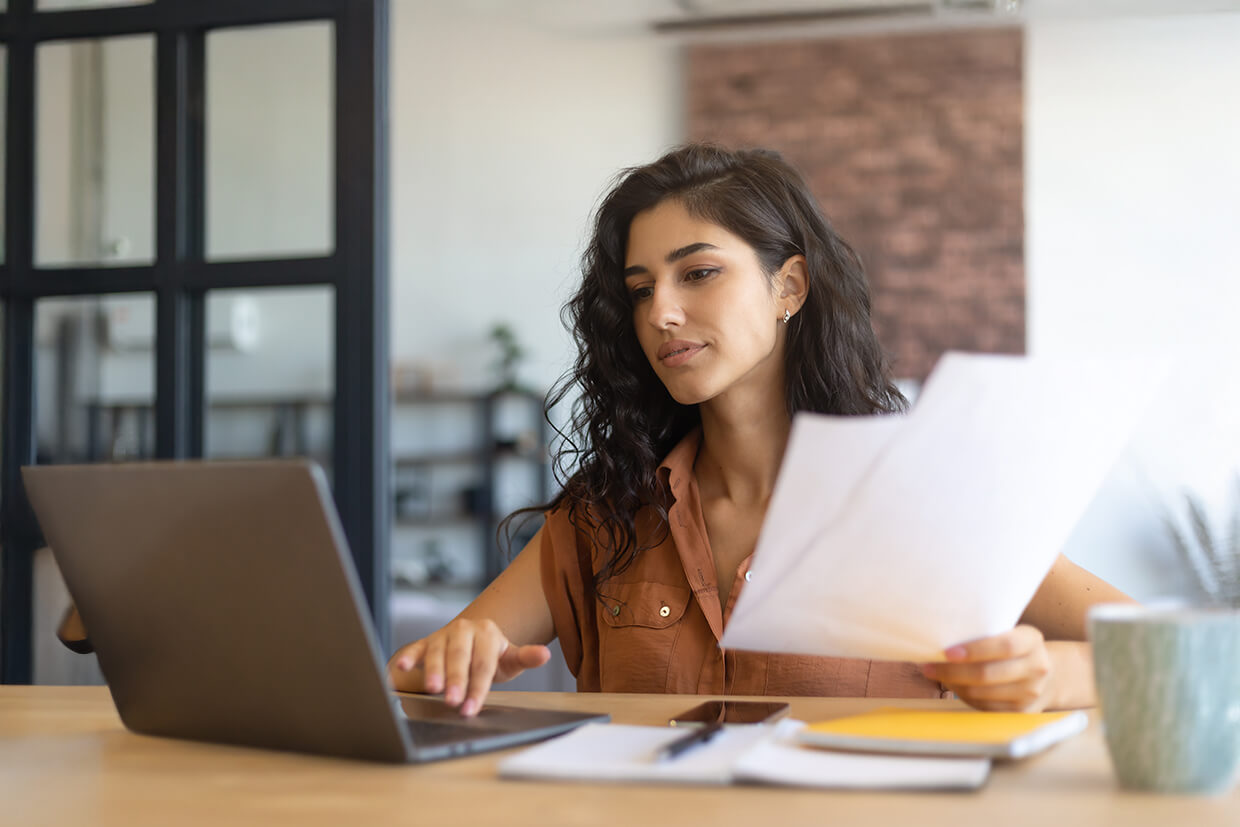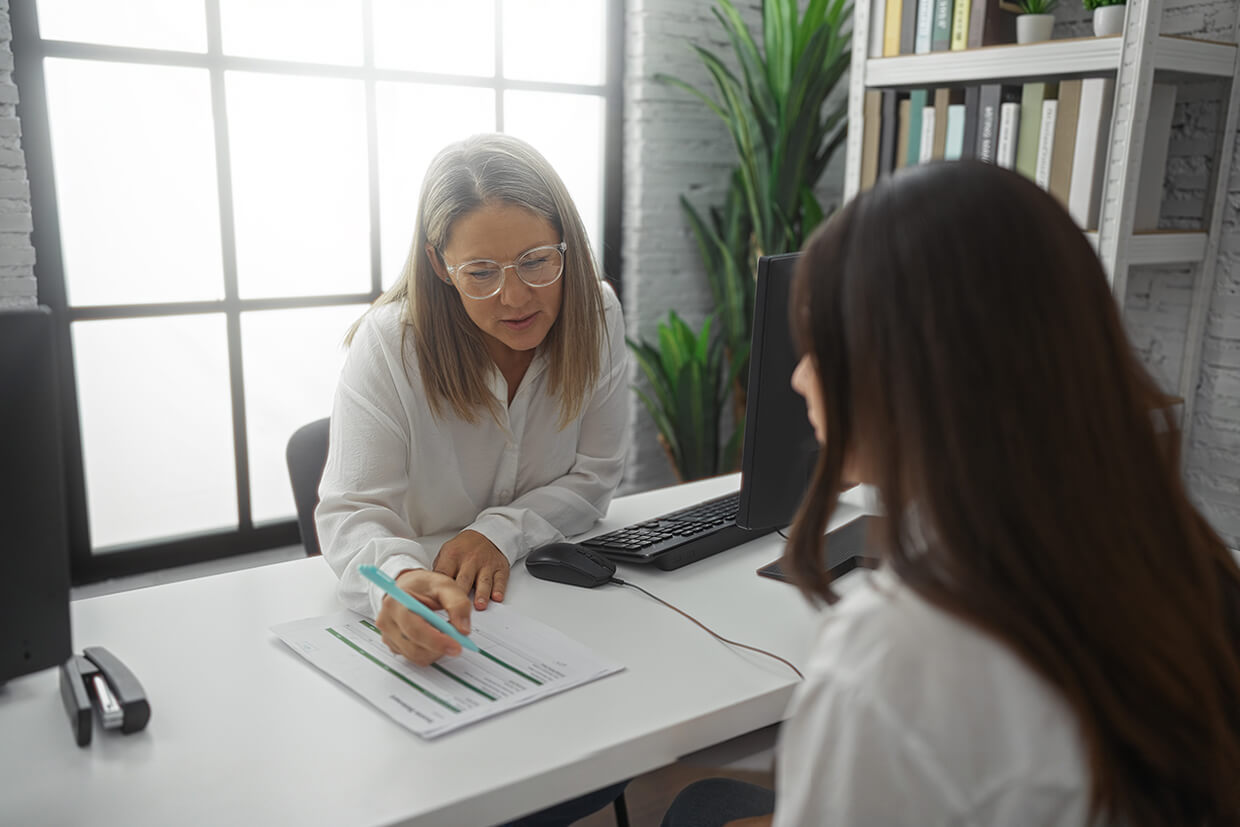Anxiety

What is anxiety?
Anxiety is an uncomfortable inner feeling of fear or imminent disaster. We all experience temporary anxiety when faced with danger, it’s a normal human reaction that helps us stay alert and act when needed.
It becomes a concern when the response is excessive or persistent enough to interfere with daily life. When we’re very anxious, we may have intense feelings of worry or distress that are difficult to control.
Anxiety is the most common mental-health condition in Australia. Up to one-third of women and one-fifth of men will experience anxiety at some point in their lives.
What are the symptoms of anxiety?
Symptoms vary from person to person and may range from mildtension to panic attacks.
Physical symptoms can include:
• Fatigue
• Dry mouth or difficulty swallowing
• Sleep disturbance or nightmares
• Muscle tension or headaches
• Rapid heartbeat or breathing
• Sweating or trembling
• Digestive changes
• Flare-ups of existing conditions (for example, dermatitis or asthma)
• Changes in libido
Psychological symptoms can include:
• Persistent worry that “something awful will happen”
• Difficulty concentrating
• Rumination or repetitive thoughts
• Irritability
• Feeling nervous or on edge
• Fearing “losing control” or “going crazy”
Because other medical issues can cause similar symptoms (such as thyroid disorders), it’s important to discuss them with your doctor, who can investigate and recommend suitable management options.
Types of anxiety
There are different types of anxiety disorders. Most commonly:
• Generalised anxiety disorder
• Social anxiety disorder
• Panic disorder
• Specific phobia
• Separation anxiety disorder
• Agoraphobia
Approaches to managing anxiety
Management options generally fall into three broad areas: psychological, medications and self-help and lifestyle. Below, we'll go into a little more detail about each.
Self-help and lifestyle treatments for anxiety
There are several self-help and lifestyle factors that can support the managemnent of anxiety. Many people find benefit in incorporating healthy habits such as:
• Regular exercise
• Balanced nutrition
• Meditation or mindfulness practice
• Yoga or relaxation techniques
• Adequate sleep
• Reducing alcohol, caffeine and recreational drug use
Psychological therapies
Psychological therapies are often a first-line approach for managing anxiety. They may be delivered one-on-one, in groups or online, depending on individual needs. Therapy can help you understand thought patterns, recognise triggers and develop skills for coping with distress. Common options include:
Cognitive behavioural therapy (CBT): helps identify and re-frame unhelpful thought patterns.
Exposure therapy: gradual, supported exposure to feared situations under professional guidance.
Mindfulness-based therapy: focusing attention on the present moment without judgement.
Other modalities such as dialectical behavioural therapy (DBT), acceptance and commitment therapy (ACT), interpersonal therapy, emotionally focused therapy or trauma-focused approaches.
Medications
If psychological and lifestyle approaches have not sufficiently reduced symptoms, a doctor may consider medication. Only a registered healthcare professional can determine whether this is appropriate, and they will discuss possible benefits and risks.
Common medication groups include:
Anti-anxiety medicines (e.g. certain benzodiazepines, generally for short-term use)
Antidepressants (including SSRIs and SNRIs)
Beta-blockers (sometimes used for situational anxiety such as performance anxiety)
All medicines can have side effects and should only be used under medical supervision. In some cases, doctors may also explore alternative or emerging therapies. These options are only considered after conventional treatments have been tried or are unsuitable. Such therapies are prescribed at the discretion of a qualified medical practitioner and require appropriate approvals.
All medicines and therapeutic products carry potential risks and benefits, and suitability varies for each individual. Always discuss your options and any side effects with a registered healthcare professional.
References
Bergamaschi MM, et al. Neuropsychopharmacology 2011;36(6):1219
Crippa JA, et al. J Psychopharmacology 2011;25(1):121–30
Bar-lev Schleider L, et al. Sci Rep 2019;9(1):200
Cutler C, et al. J Affect Disord 2018;235:198⎼205
Disclaimer: This information is not intended to be used as medical advice or a substitute for your own practitioner’s advice, nor is it intended to be used for diagnosis or treatment for any illness/disease.




